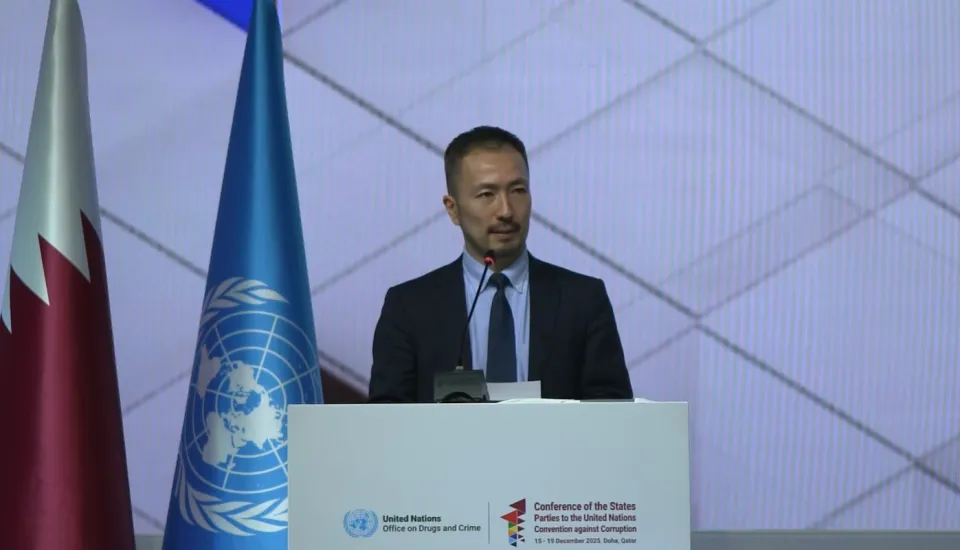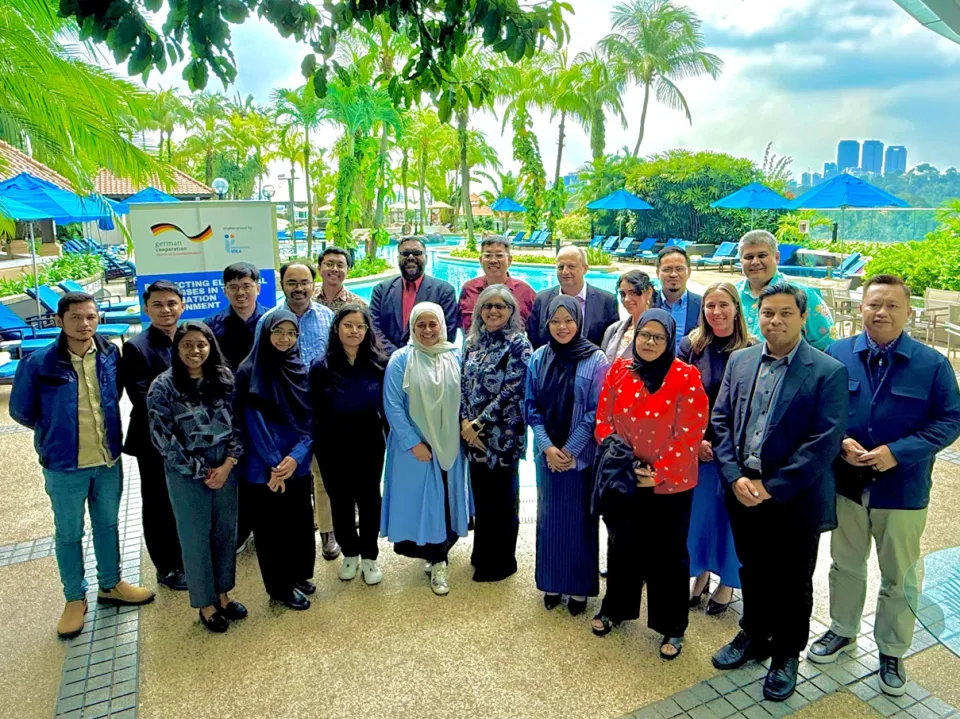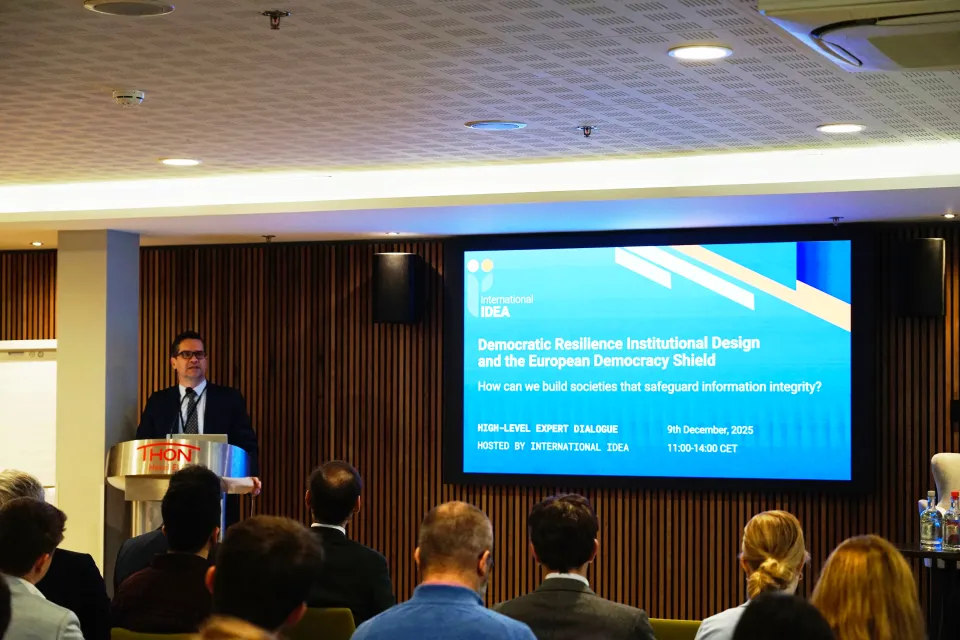Three parties, the Frente Amplio (FA), the Blancos, and the Colorados, are currently represented in the Uruguayan parliament. The Partido Independiente, which inherited part of the Nuevo Espacio Party and did not follow its majority to the FA, is only represented in the Lower Chamber.
The question is whether any other party will obtain seats in the 26 October election. The answer is very relevant, as political scientist Oscar Botinelli points out: the Uruguayan electoral system could allow the FA to keep its majority in the parliament with 46.5 per cent of the votes, or lose it with 48.5 per cent, depending on the representation obtained by other political forces. With a majority of the FA in the parliament, Tabaré Vázquez would only have to pass the formality of the run-off on 30 November to retain his presidency. Without it, the door of the presidency will open for Luis Lacalle Pou.
In the 1958 elections, six parties (lemas, in juridical-electoral jargon) obtained seats in the Chamber of Representatives: the Partido Nacional, the Partido Colorado, the Unión Cívica del Uruguay, the Partido Socialista (PS), the Partido Comunista, and the Unión Demócrata Reformista (UD--a group which split from the conservative Colorados). Blancos, Colorados, UD and PS also obtained seats in the Chamber of Senators. Fifty-five years have since passed.
It is problematic to conduct surveys now because surveyors in the streets encounter closed doors, and making substitutions could compromise the sample integrity. The alternative, telephone surveys, are less precise and involve fewer people due to the low prevalence of fixed telephone line. This method also has a high rate of rejection. Some companies have started to use this method despite the obstacle of obtaining cell phone numbers and knowing the identity of the person answering. Only national surveys are “valid,” and can detect clear tendencies; however, it is challenging to determine which way the person intends to vote, due to current extra-parliamentary forces that fall into the margins of error. There is a clear discrepancy between companies regarding the meaning of responses such as “does not know” or “does not reply,” as well as about those stating that they will vote blank or null. This information seems difficult to obtain before the elections, and for this reason directors of survey companies must turn to extra-statistical knowledge and to the so-called “pifometre” (or as we would say, a “smell test,” or sniffing out possible results).
Linking data from individuals with that of their consumption habits or the frequency with which they use certain expressions in social networks has not yet been done, but when it does happen, it will markedly increase the cost of public opinion studies.
One week before the election, the companies carrying out these studies showed marked differences in the number “does not know” or “does not reply” responses associated with persons yet undecided about their vote. This ranges from 4 per cent (about 92, 000citizens) to 15 per cent (about 345,000 voters). This uncertainty turns every prediction into a mere act of faith.
Of course, we are talking about global results, i.e. how many votes each lema will receive. It is mere speculation to offer information about how votes will be cast inside each of them, since the main three parties (lemas) are “federations of fractions” which remain united thanks to the electoral engineering mechanism, improperly referred to as the double simultaneous vote, which allows the accumulation by lemas.
The “pifometre” test estimates that the FA will obtain between 13 and 15 seats, the Partido Nacional between 10 and 12, and the Partido Colorado between four and five. The question is whether the Partido Independiente will obtain one seat or not (if it gets one, it would come at the cost of a seat from the FA), for a total of 30 seats in the Upper Chamber. Number 31 will be the vice-president: either Raúl Sendic or Jorge Larrañaga.
In the Lower Chamber, that of Representatives, the FA could obtain between 44 and 47 seats, the Partido Nacional between 32 and 36, the Colorados between 14 and 18, the Partido Independiente 3, and possibly one would go to the Unidad Popular. Even the PERI may gain a seat that would otherwise have gone to the FA, however this result does not seem very probable. In both cases, the FA would lose, as the lema with the lowest quotient. Hence for the first time since 1958 we may see more than four lemas with deputies. This is the reason why there are doubts about the final result of the race for the presidency.
This possible distribution would indicate that, at a minimum, between 93 and 95 seats are already decided upon, leaving six, five or four seats still to be allocated.
According to the “pifometre,” Vásquez may not reach 50 per cent plus one vote. This would then cause a second electoral round to take place, in which the result would be even more uncertain. A Luis Lacalle Pou presidency will only be guaranteed if the FA obtains less than 45 per cent of the votes.
Even if he gets 45 per cent of the vote, Vázquez would need votes from the small, currently extra-parliamentary forces, and at least a third of the votes of the Partido Independiente to win.
If there is a run-off, it would be difficult for Vázquez to obtain explicit support for his candidacy–even more so if within the FA the so-called “mega sublema” (biggest sub-lema), headed by Sendic and the faction of the current President, José Mujica, are predominant.
The path for the Blanco candidate is not easy either. He would not only need support from the overwhelming majority of the Colorado voters, he would also need to win all the votes from his party, as well as some of those from the Partido Independiente. Whether he becomes president or not, it is clear that when the 41-year-old Lacalle Pou announced his candidacy he brought pertinent topics to the surface which reflect a generational revolution of new ideas and thoughts. This is not just relevant for the political sphere, but also for business and society as a whole.
One week before the first round, the final result is uncertain and we must await the new government, whoever the winner will be. The “bureaucracy and usury” cited in the past by Carlos Real de Azúa will prevail in the daily struggle to obtain parliamentary support for the government’s efforts, especially for the most relevant laws at this time: budget, expenditures, resources, and corrections for accountability. In other words, there will be costly negotiations for every issue.



